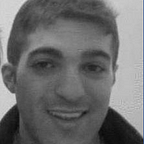Lose Fear, Gain Freedom
How Pastor Adam Hamilton helped this secular Millennial shake his fears.
That famous quote — “The only thing we have to fear is fear itself” — is more than a platitude.
Ask Adam Hamilton. He’s one of America’s best-known pastors, but he’s more than that — he’s an expert on fear. In his new book, Unafraid: Living with Courage and Hope in Uncertain Times, Hamilton writes about the imprisoning nature of fear.
How is fear imprisoning? Well, you already know the answer; simply reflect on your problems. Then ask yourself: What’s their cause? Their root cause? If you dive deep, you’ll find that fear — yes, a mere emotion — is the zeitgeist.
***
Hamilton’s overall thesis, it seemed to me, is one shared by all the wisest sages in history, from Jesus Christ to the Buddha: Fear is dis-empowering. Fear hijacks our bodies and minds, causing us to lose self-control, making us avoid the values and activities that lead to true self-actualization.
How to eliminate fear? Well, as Hamilton said during a conversation we had a few days ago, your emancipation from fear largely comes down to (1) growing comfortable with uncertainty and (2) adopting the right values.
Uncertainty can never be eliminated. And values control your desires, fear’s parents. Fear death? You desire life. Fear loss of status? You desire prestige. Fear uncertainty? You desire certainty. And so on.
Hamilton comes at things partly from a religious perspective. But as a spiritually unsure person myself, I found a lot of his lessons to be universal. First, atheists and agnostics who bash religion ignore the lessons contained in every holy book, including the New Testament. Second, Hamilton’s book is full of … science. And statistics. For example, Hamilton surveyed 18–35-year-olds to ask them what they feared most. The answer? Loss of money, loss of status, loss of health, and so on — all losses, and — more pertinently — all things that we don’t have complete control over.
Uncertain things.
***
We must, as Hamilton’s title suggests, live with “courage and hope in uncertain times.” This is no easy task. I fail at it — often. I also have desires, and no matter how much Buddhism or Christianity or Adam Hamilton books I digest, I doubt I’ll ever lose them. I’m addicted to dopamine, like everyone else; I’ll always fear losing something.
Even if you’re not religious, I encourage you to give Hamilton’s book a chance. I don’t know whether I can adopt religious faith, which — while not a necessary condition for Hamilton — is important. But maybe you don’t need religious faith. Maybe you just need faith that you aren’t that important — well, you are, but not in the way so many people want to be “important.”
The center of the universe isn’t you. Or me. If we take a step back, if we realize that we are either (1) children of God or (2) bundles of atoms that are doomed to die, our problems become less significant, because our egos become less significant.
(What’s more, in a world where most jobs will eventually be automated, your worth doesn’t come from your status or your prestige. Your worth comes from your grace. Your kindness. Your forgiveness. Your mercy.)
Hamilton helped change my life for the better, and I read his book at a time when I had problems that needed exactly that sort of medicine. We’ll never get rid of uncertainty, but we can learn to be comfortable with it. Lose your sense of fear.
Because fear constrains freedom and — as Hamilton writes — “We can unlearn fear, and in unlearning fear we can find freedom.”
